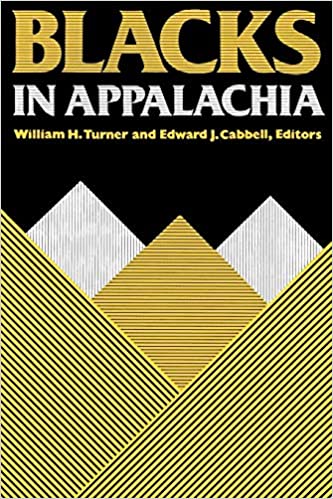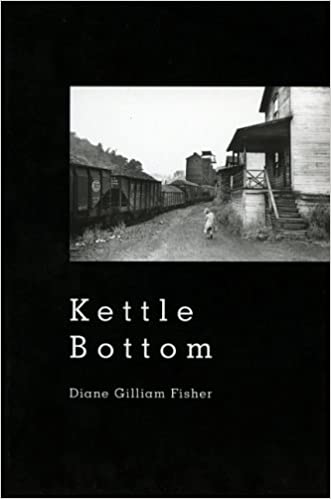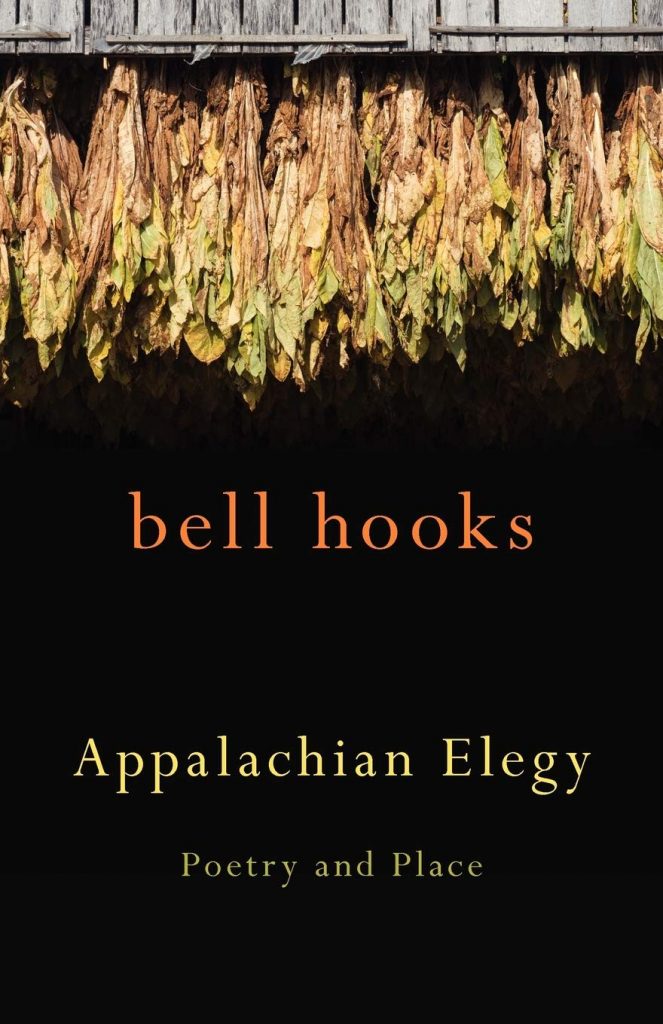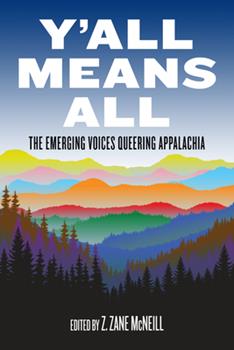UPDATED February 3, 2025
By Annie Regan and Sylvia Porras
Black History Month is a time to celebrate and uplift the stories and accomplishments of Black people throughout the country.
This February, we here at ReImagine Appalachia would like to recognize the hard work and impact of Black Appalachians that have made the region what it is today. We acknowledge that this will always be incomplete and ever-growing due to the history of whitewashing in Appalachia, which is why we are so grateful for groups like the Black Appalachian Coalition, Black By God, and more.
This blog will showcase:
- Influential Black Appalachians
- Upcoming Black History Month events in Appalachia
- Our Celebrating Black Appalachians Playlist
- Black-led organizations in Appalachia
- Black Appalachian Literature
Influential Black Appalachians
Events
- February 4th: Black History Month Lecture: The Battle for the Black Mind– Join Dr. Karida L. Brown, NAACP Award-winning sociologist and historian as she discusses The Battle for the Black Mind, a powerful journey through the history of Black education, revealing the centuries-long struggle to control Black intellectual life in America and across the globe.
- February 7th: Beck Cultural Exchange Center’s Black History Month Celebration– KNOXVILLE, TN: Feb. 5:30 p.m. – A special screening of “The Indelible Appalachians.” Presented by UT Knoxville’s Education, Health and Human Science Department in partnership with the Beck Cultural Exchange Center, this film explores the often-overlooked contributions and rich history of African Americans in Appalachia. The event includes a panel discussion.
- February 13th: The Reshaping of Racial Labor in the Age of A.I. with Dr. Golden Owens– Thursday February 13th 6 PM EST. The implications and use of AI and GenAI has a pivotal impact on the lives and experiences of African Americans. Golden M. Owens will explore this through the lens of gender and labor.
- February 12th: Virtual Film Screening – “Fire Through Dry Grass”– 7 p.m. Wednesday, Feb. 12, online via Zoom. Penn State Sustainability and WPSU are hosting this online film screening detailing the experience of disabled African American artists in a New York City
- February 22nd: Screening of the documentary “Coal Black Voices,”– Evans Auditorium, Lees-McRae College, Banner Elk, North Carolina. directed by Jean Donohue and Fred Johnson. The documentary provides a peek into the lives of African Americans in the Southern and Appalachian regions of the United States through the poetry and storytelling of the Affrilachian Poets.
Playlist
Black-led Organizations in Appalachia
- Black Appalachian Coalition (BLAC): To build a multi-state campaign that amplifies black voices, dismantles the colonized narrative of Appalachia, and uses story-based strategies and solutions that center the voices and lived experience of Black Appalachians.
- Black in Appalachia: Non-profit that works in collaboration with public media, residents, university departments, libraries, archives and community organizations to highlight the history and contributions of African-Americans in the development of the Mountain South and its culture.
- Appalachian African American Cultural Center (AAACC)– To represent history and culture – they have conducted Black history programs for local schools in the past, student groups often visit during Black History Month in February. The center also hosts workshops on dismantling racism.
- Foundation for Appalachian in Ohio – African American Community Fund– To create opportunities for Appalachian Ohio’s citizens and communities by inspiring and supporting philanthropy.
- Highland Research and Education Center- Highlander serves as a catalyst for grassroots organizing and movement building in Appalachia and the South. We develop leadership and help create and support strong, democratic organizations that work for justice, equality and sustainability in their own communities and that join with others to build broad movements for social, economic and restorative environmental change.
- Black by God– Black By God is a community-led news organization based in West Virginia that aims to provide a more nuanced portrayal of the Black Experience in the Appalachian region.
Books
Praisesong for the Kitchen Ghosts NATIONAL BESTSELLER • A lyrical culinary journey that explores the hidden legacy of Black Appalachians, through powerful storytelling alongside nearly forty comforting recipes, from the former poet laureate of Kentucky.


Tales of Koehler Hollow tells the story of Amy Finney and her descendants. Amy, a formerly enslaved Black woman, gained her freedom and established a homestead in the Appalachian mountains during a time in American history when she was dehumanized for the color of her skin and devalued for being female. Naomi Hodge-Muse, working with Christopher A. Brooks, recounts stories from her family history, starting with her great-great-grandmother, Amy, through her parents, aunts, uncles, and siblings and their rural life. Their family story represents a microcosm of the African American experience in southern Virginia from the mid-19th century to the present – along with the complications, joys, tragedies, and sorrows that surrounded them.

Belonging: A Culture of Place (2009) by bell hooks
Traversing past and present, Belonging charts a cyclical journey in which hooks moves from place to place, from country to city and back again, only to end where she began–her old Kentucky home. In this book she turns her attention to focus on issues of land and land ownership. Reflecting on the fact that 90% of all black people lived in the agrarian South before mass migration to northern cities in the early 1900s, she writes about black farmers, about black folks who have been committed both in the past and in the present to local food production, to being organic, and to finding solace in nature. Naturally, it would be impossible to contemplate these issues without thinking about the politics of race and class. Reflecting on the racism that continues to find expression in the world of real estate, she writes about segregation in housing and economic racialized zoning. In these critical essays, hooks finds surprising connections that link the environment and sustainability to the politics of race and class that reach far beyond Kentucky.
Harlan Renaissance (2021) by William H. Turner
The Harlan Renaissance is an intimate remembrance of kinship and community in eastern Kentucky’s coal towns written by one of the luminaries of Appalachian studies, William Turner. Turner reconstructs Black life in the company towns in and around Harlan County during coal’s final postwar boom years, which built toward an enduring bust as the children of Black miners, like the author, left the region in search of better opportunities. The Harlan Renaissance invites readers into what might be an unfamiliar Appalachia: one studded by large and vibrant Black communities, where families took the pulse of the nation through magazines like Jet and Ebony and through the news that traveled within Black churches, schools, and restaurants. Difficult choices for the future were made as parents considered the unpredictable nature of Appalachia’s economic realities alongside the unpredictable nature of a national movement toward civil rights.


Blacks in Appalachia (1985) by William H. Turner and Edward J. Cabbell
A groundbreaking, seminal work. Although southern Appalachia is popularly seen as a purely white enclave, Blacks have lived in the region from early times. Some hollows and coal camps are in fact almost exclusively black settlements. The selected readings in this new book offer the first comprehensive presentation of the Black experience in Appalachia.
Knocking on Labor’s Door: Union Organizing in the 1970s and the Roots of a New Economic Divide (2017) by Lane Windham
The power of unions in workers’ lives and in the American political system has declined dramatically since the 1970s. In recent years, many have argued that the crisis took root when unions stopped reaching out to workers and workers turned away from unions. But here Lane Windham tells a different story. Highlighting the integral, often-overlooked contributions of women, people of color, young workers, and southerners, Windham reveals how in the 1970s workers combined old working-class tools–like unions and labor law–with legislative gains from the civil and women’s rights movements to help shore up their prospects. Through close-up studies of workers’ campaigns in shipbuilding, textiles, retail, and service, Windham overturns widely held myths about labor’s decline, showing instead how employers united to manipulate weak labor law and quash a new wave of worker organizing.


Bone Black: Memories of Girlhood (1997) by bell hooks
This memoir shows the unfolding of female creativity and one strong-spirited child’s journey toward becoming a writer. She learns early on the roles women and men play in society, as well as the emotional vulnerability of children. She sheds new light on a society that beholds the joys of marriage for men and condemns anything more than silence for women. In this world, too, black is a woman’s color—worn when earned—daughters and daddies are strangers under the same roof, and crying children are often given something to cry about. hooks finds comfort in solitude, good company in books. She also discovers, in the motionless body of misunderstanding, that writing is her most vital breath.
Black Days, Black Dust: The Memories of an African American Coal Miner (2002) by Robert Armstead
Among those drawn to jobs in the booming West Virginia coal mines during the first part of the twentieth century were thousands of African Americans. They proved successful in this industry—despite low wages and discrimination at the hands of mine operators. This book, the first published memoir by an African American coal miner, is a stirring tale of survival and achievement. Bob Armstead interweaves stories of family and community with a broad history of underground mining to paint an engrossing picture of the work, the dangers, and the drama of that industry.


Kettle Bottom (2004) by Diane Gilliam Fisher
Based on the historical and social events of the West Virginia coal mine wars of 1920-1921, Kettle Bottom imagines the stories of miners, their wives, children, sisters, and mothers; of mountaineers, Italian immigrants, and Black families.
Appalachian Elegy, Poetry and Place, Kentucky Voices (2012) by bell hooks
In this collection, bell hooks continues her work as an imagist of life’s harsh realities in a collection of poems inspired by her childhood in the isolated hills and hidden hollows of Kentucky. At once meditative, confessional, and political, this poignant volume draws the reader deep into the experience of living in Appalachia.


Black Bone: 25 Years of the Affrilachian Poets (2018) Edited by Bianca Lynne Spriggs and Jeremy Paden
Author Frank X Walker coined the term “Affrilachia” to give identity and voice to people of African descent from this region and to highlight Appalachia’s multicultural identity. This act inspired a group of gifted artists, the Affrilachian Poets, to begin working together and using their writing to defy persistent stereotypes of Appalachia as a racially and culturally homogenized region. This illuminating and powerful collection is a testament to a groundbreaking group and its enduring legacy.
Affrilachia: Poems (2000) by Frank X Walker
Called “a milestone book of poetry at the intersection of Appalachian and African American literature.” In this pathbreaking debut collection, poet Frank X Walker tells the story of growing up young, Black, artistic, and male in one of America’s most misunderstood geographical regions. As a proud Kentucky native, Walker created the word “Affrilachia” to render visible the unique intersectional experience of African Americans living in the rural and Appalachian South.
Since its publication in 2000, Affrilachia has seen wide classroom use, and is recognized as one of the foundational works of the Affrilachian Poets, a community of writers offering new ways to think about diversity in the Appalachian region and beyond.


Y’all Means All: The Emerging Voices Queering Appalachia (2022) By Zane McNeill
Y’all Means All is a celebration of the weird and wonderful aspects of a troubled region in all of their manifest glory! This collection is a thought-provoking hoot and a holler of “we’re queer and we’re here to stay, cause we’re every bit a piece of the landscape as the rocks and the trees” echoing through the hills of Appalachia and into the boardrooms of every media outlet and opportunistic author seeking to define Appalachia from the outside for their own political agendas. Multidisciplinary and multi-genre, Y’all necessarily incorporates elements of critical theory, such as critical race theory and queer theory, while dealing with a multitude of methodologies, from quantitative analysis, to oral history and autoethnography.
